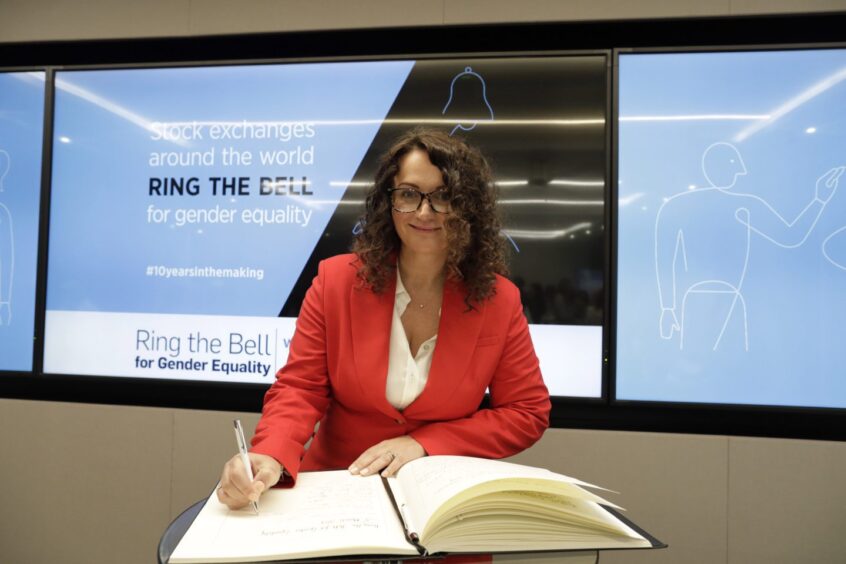
Nicola Plenderleith, head of talent acquisition at Leyton UK, and United Nations global compact target gender equality ambassador, explores the state of gender equality in UK business with a specific lens on the UK energy sector.
Gender equality in the workplace is a critical indicator of an inclusive and progressive society. In the United Kingdom, significant strides have been made towards gender parity across various sectors. However, the journey is ongoing, particularly in traditionally male-dominated industries like energy.
The Broader Landscape of Gender Equality in UK Business
The UK has seen notable improvements in gender equality within its business sphere over recent years. According to the Office for National Statistics (ONS), the gender pay gap among all employees in the UK decreased to 7.9% in 2022, down from 9.0% in 2019.
Initiatives like gender pay gap reporting, introduced in 2017, have played a crucial role in increasing transparency and driving progress. Furthermore, the number of women in senior leadership roles has seen an upward trend. The FTSE Women Leaders Review in 2023 reported that women now hold 40.2% of board positions in FTSE 100 companies, compared to just 12.5% a decade ago.
Despite these advancements, challenges persist, especially in industries like energy, which have been slower to embrace gender diversity.
Gender Equality in the UK Energy Sector
The energy sector is pivotal to the UK’s economy and sustainability goals. However, it remains one of the most male-dominated industries. A 2021 report by POWERful Women and PwC highlighted that women accounted for only 24% of the workforce in the UK energy sector.
Even more stark is the representation at the executive level, where women hold just 14% of executive board seats in the top 80 UK energy companies.
Workforce Composition
The gender disparity in the energy sector’s workforce is apparent. Engineering and technical roles, which form the backbone of the industry, are predominantly occupied by men. According to EngineeringUK’s 2022 report, women constitute only 16.5% of engineers in the UK.
This statistic mirrors the broader energy sector’s demographic makeup, where technical roles are critical.
Leadership Representation
Leadership representation in the energy sector further underscores the gender imbalance. The aforementioned POWERful Women and PwC report revealed that only 6% of executive board seats were held by women in 2021, although this was an improvement from 5% in 2019.
The disparity is even more pronounced in senior operational roles, where decision-making power directly influences the industry’s direction.
Pay Disparity
The gender pay gap in the energy sector remains a significant issue. According to the ONS, the gender pay gap in the electricity, gas, steam, and air conditioning supply industry was 18.6% in 2022, more than double the national average.
This gap highlights the systemic barriers women face in achieving equal pay for equal work.
Efforts to Promote Gender Equality
Industry-led programs, such as the Energy Leaders’ Coalition and POWERful Women, are advocating for better gender diversity. These organisations focus on setting diversity targets, mentoring, and creating inclusive workplace cultures.
Many companies are increasingly adopting policies to support gender equality including flexible working arrangements, targeted recruitment efforts, and diversity training programs.
While progress has been made towards gender equality in the UK business landscape, the energy sector still faces significant challenges. The data reveals a persistent gender imbalance in workforce composition, leadership representation, and pay disparity.
However, ongoing initiatives and a growing awareness of the importance of diversity offer hope for a more inclusive future.
Achieving gender equality in the UK energy sector is not just a moral imperative but also a business necessity. Diverse teams are known to drive innovation, improve decision-making, and enhance financial performance.
As the UK continues to transition towards a sustainable and inclusive economy, gender equality in the energy industry will be a critical component of this journey.
With more than 12 years of R&D experience and unrivalled tax and technical expertise, Leyton UK is ideally positioned to unlock potential value within your business.
Recommended for you

 © Supplied by Leyton UK
© Supplied by Leyton UK © Supplied by Leyton UK
© Supplied by Leyton UK